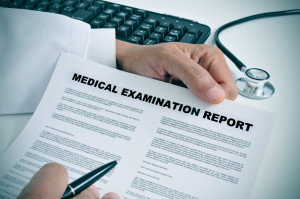Many experts have advanced degrees in specialized fields, but other experts gained their knowledge through experience. Rule 702 of the Federal Rules of Evidence permits expert testimony that will help the jury if the expert is qualified “by knowledge, skill, experience, training, or education.” Most states follow a similar rule.
Experience in the kitchen was enough to qualify a cookie expert to testify in a case from Hawaii that an attorney recently discussed in The Ukiah Daily Journal. The case involved a lawsuit that Big Island Candies, Inc. brought against The Cookie Corner, alleging that The Cookie Corner improperly copied its cookie design. In its defense, The Cooker Corner presented sworn statements from a number of cookie experts, including Wally Amos, better known to cookie lovers as Famous Amos.
The Cookie Design Dispute
According to the court decision, Big Island marketed “a rectangular macadamia-nut shortbread cookie with ‘bull-nose’ (i.e., rounded) corners that is diagonally dipped in chocolate.” The court expressed no opinion whether the cookie is as delicious as it sounds.
Big Island did not accuse The Cookie Corner of copying the cookie’s recipe, but of stealing the cookie’s design. According to Big Island, covering only half the cookie in chocolate along a diagonal line that ran from corner to corner, along with its rectangular shape and bull-nose corners, gave the cookie a distinctive appearance that it was entitled to protect. The Cookie Corner’s version of the cookie was nearly identical, except that its cookie was slightly larger.
The case turned on whether the cookie’s design was inherently distinctive and therefore protectable by intellectual property laws. If Big Island’s cookie was a generic design, The Cookie Corner had as much right to use it as Big Island and Big Island was not entitled to claim that its design had been copied.
A generic design is one that relies upon basic product features that are common to most similar products. The size and shape of cookies, for example, are usually basic design features because most cookies share similar sizes and are made in one of a few common shapes. A design is deemed generic when it is so common that consumers do not identify it with a particular manufacturer. A distinctive design, on the other hand, is not only unique but is intended to make consumers associate the design with a particular brand.
Expert Cookie Opinions
To apply these rules to chocolate-covered macadamia nut shortbread cookies, the court turned to the expert evidence that Big Island and The Cookie Corner supplied. Big Island offered expert survey evidence from researchers who showed the cookie to consumers and asked if they knew who made the cookie. Roughly a quarter of the consumers associated the cookie with Big Island, but that evidence did not persuade the court that consumers thought the cookie design’s primary significance was its ability to help them distinguish Big Island cookies from other brands. Besides, consumers could see the name “Big Island Candies” on the cookie wrapper, which likely helped them identify the manufacturer more than the cookies’ design.
Big Island also offered expert evidence from a seller of cookie-making machines who testified that he “could not recall” seeing other brands of shortbread cookies that were half-covered with chocolate on a diagonal. Since that failure of recollection did not refute the testimony provided by The Cookie Corner’s experts, the court held that it did not establish the distinctiveness of the Big Island design.
The Cookie Corner, on the other hand, offered the opinions of several experts “with extensive training and experience in the baking and cookie industries.” Those experts (including Wally Amos) offered opinions that the size, shape, and diagonal chocolate coating of Big Island’s cookie were widespread design features that are commonly used in the cookie industry. The court ruled in favor of The Cookie Corner because its expert evidence was essentially unrefuted.
Cookie Expert Qualifications
Big Island argued that The Cookie Corner’s experts were not qualified to provide expert evidence because they did not have adequate credentials. In particular, Big Island asked the court to discount Wally Amos’ opinion because he “did not graduate from high school and because he does not have a degree in a culinary field.”
The court noted that Rule 702 does not require experts to have formal degrees. Expertise can be acquired by on-the-job experience. Wally Amos founded the Famous Amos Cookie Company, has traveled extensively to meet with cookie makers and bakers, and has acquainted himself with hundreds of cookie recipes. The court had no trouble accepting Amos as a cookie expert based on his extensive experience in the cookie industry.













